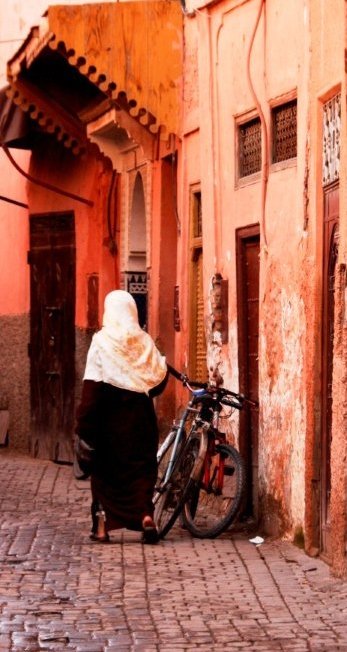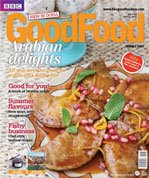Writing about Another Culture
 When it comes to writing fiction about another culture, some writers are paralyzed, convinced they’ll get it wrong. Others write boldly, using whatever snippets of knowledge they may have. Meanwhile, others don’t even attempt to portray another culture—out of fear of offending.
When it comes to writing fiction about another culture, some writers are paralyzed, convinced they’ll get it wrong. Others write boldly, using whatever snippets of knowledge they may have. Meanwhile, others don’t even attempt to portray another culture—out of fear of offending.
Here are some suggestions that have helped me along:
Avoid stereotypes. Some examples of stereotypes are: the submissive Asian woman, the ignorant American, the black criminal, the drunken Indian, the Muslim terrorist or the Hispanic gang member. Granted, all of these stereotypes have a grain of truth to them; that’s how they came about. But what happens when readers come across these sorts of stereotypes in a story? For some, these generalizations will confirm their world view. However, other readers may think, Oh, here we go again. We’ve seen this before. Some readers may lose faith in the writer. Some may become offended. Others may stop reading altogether.
So, how does one avoid cultural stereotypes?
Do your research. Go to the source. That is, don’t rely on the six o’clock news for your cultural information. Read literature and short stories straight from the culture. Sift through books with culture-related photographs. Watch films from the culture. Take notes and soak up details about the clothing, the music, the language, the setting, and the themes.
Plan an outing. Whenever possible, go to the spot you are writing about. If you can’t travel to the culture, go to Chinatown or eat at a Moroccan restaurant or participate in a multicultural festival. Attend a dance or music performance, a play, a book reading, a lecture, a cooking demonstration or a political event—anything that will shed light on the culture. Stay alert, ask questions, and take notes. You never know—a gesture, a piece of jewelry, a turn of phrase or a particular food could be the killer detail that helps create an authentic scene or character.
Strive for accuracy. Don’t take any detail for granted. For example, if you’re writing a scene involving a culturally-specific food, be open to learning more. Read a recipe in an ethnic cookbook; find out how the food is prepared, seasoned, garnished, served, and eaten. Talk to a cook. Aim for authentic and relevant details. One incorrect detail could cause a reader to pause or lose faith in the writing.
Keep an open mind. Don’t conduct research with the idea of simply confirming what you already believe to be true. Rather, set aside your filter and be open to new ideas that may contradict your current view.
Go beyond the obvious. Don’t settle for the first portrayal of the culture that comes to you. Avoid the easy and superficial plot lines. Dig deeper. Consider including issues of moral values, religion, rituals, family dynamics and taboos.
Include foreign words—but sparingly. Foreign phrases can add a wonderful cultural flavor to a story. It can be a lot of fun. That is, if the reader already knows the language. Readers who aren’t familiar with the language may stumble or become annoyed by lots of words they don’t understand. Select foreign words carefully. Consider including words and phrases the average reader may already know, phrases that can’t be translated easily, and phrases that will be used repeatedly throughout the story. Weave in the meaning of the phrase the first few times it’s used, but trust the reader will remember the third or fourth time it appears. I found that more than one or two foreign words per page can distract readers.
Emphasize universal themes. In my experience, the best multicultural fiction highlights a particular culture while at the same time developing universal themes that everyone can relate to, for example—longing for a loved one, the bond between a parent and child, sibling loyalty and rivalry, the desire to have a home of one’s own, and (my favorite) the tension involving a mother-in-law. Everyone can relate to that.
If you must include a stereotype—do so with a twist. Some writers insist that their plot requires a black maid or an oppressed Arab woman to make their story work. Okay. Fair enough. Those people do exist in real life, after all. To avoid creating a caricature, add an unexpected twist or two to make your character go beyond cliché and toward authenticity. Add multiple layers to create a more fully formed, fully human character.
Interview someone and get feedback. Talk to someone from the culture. Ask them or someone who knows the culture well to read your story or excerpts from your manuscript. Ask, “What parts seem authentic to you? What doesn’t?”
Regardless of the challenges, don’t shy away from multicultural characters. If you eliminate other cultures from your writing out of fear of offending, other problems crop up. A story that features only one dominant culture is unrealistic, repetitive and possibly offensive in a different way.
Remember that writing about other cultures is inevitable. Fiction writers can’t avoid writing from the point of view of characters of different ages, genders, socio-economic backgrounds or professions. In a sense, these are all different “cultures.”
Meanwhile, a multicultural world is not only the future, but it’s the present. As the world shrinks, our neighbors, friends, co-workers and family members are increasingly from different cultures. Our written stories should reflect this.
A Small Sample of Multicultural Fiction:
Cutting for Stone by Abraham Verghese
Joy Luck Club by Amy Tan
Life of Pi by Yann Martel
Poisonwood Bible by Barbara Kingsolver
Sweetness in the Belly by Camilla Gibb
Unaccustomed Earth by Jhumpa Lahiri
Note: This blog post first appeared on the #amwriting.org website, a site developed by my social media hero Johanna Harness.
To read a sample of my own multicultural writing, see my short story, “My Brother’s Wife,” set in Jordan and told from the point of view of a Jordanian girl, published in this month’s edition of The Writer magazine. You can read the story online.
 Follow
Follow
Great topic Holly. I read this post before on #amwriting website. You cover some important points here. As you said the world is shrinking and I am a big proponent of multiculture in all its forms..warts and all. Someone asked on my blog about identity issues with so much mixing and intermingling and how we retain that individual identity/culture while at the same time intergrating influences from others and their backgrounds. It made me think, especially since mine and my family’s is so culturally/ethnically and religiously diverse. Where does one draw the line?
Anyway, love your choice of books, all my favorites too, Barbara Kingsolver being my writing idol… Still haven’t read Life of Pi but intend to one day.
@Zvezdana Thanks for your thoughtful comment, Zvezdana. I appreciate it…. As for where does one draw the line regarding cultural influence? Hmmm … Regarding bi-cultural individuals, I think it’s personal. Each of my kids has their own unique blend of the Palestinian/American combination, and they will continue to refine their identity as they grow. (Don’t we all?) As for myself, I adopt lots from Arabic culture. However, sometimes I go too far & I think: Whoa! That’s not me. Then I take a step back. I guess that’s how I draw the line…. On the other hand, I think having no cultural influences in your life (besides your own) would get kinda dull. 🙂
Smart post, Holly. I know I don’t comment as much as I’d like on your posts, but please know that I think you are brilliant and brag about my “writer friend” often. 😉 Miss you!
Hi Sariya, Thanks for the sweet comment. It made my day. 🙂
Read your short story in Writer Mag and loved it. I too am a writer, American wife of a Palestinian and have 3 kids. You’re story really inspired me and I look forward to reading more. Best of luck!
@Erika Rizkallah Thank you so much for dropping by and leaving this comment. I appreciate it more than you know! Best wishes to you on your writing & your own cross-cultural life. 😉
Oh, I absolutely loved this post!
Neelu, So glad you found it useful. Thank you for reading & for leaving a comment. It means a lot. 🙂
Wonderful post! I have just finished reading My Brother’s Wife and I totally agree with the judge, the story is a winner and congratulations Holly for the first prize. I love captivating stories that don’t let one guess the ending right from the start. I read it fast, eager to know how it would end, I even thought for a moment his wife would be drawn into that world and stay:) I loved the easy flow of the story and how well you captured the theme. Beautiful, just beautiful!
PS There was a mention of a twice-winning novel of yours, is there a post about it on your blog that I missed or can it be read anywhere (or has it been published in the meantime)?
Hi Adriana, Thank you so much for reading my short story & for the kind comment. It means a lot! As for the novel … it’s still unpublished. I hope to see it published eventually in some way or another. Thanks again for your encouraging words.
Great post. I am a perfectionist at heart and often have trouble starting unfamiliar tasks for fear of failure. So I can relate to authors having to write about foreign cultures. I think there are some grants for in the United States for minority authors to write about their culture. Hopefully we’ll see a broader diversity of books in the near future.
Hi Jessica, Thanks so much for stopping by & leaving a comment. My favorite kind of literature is multicultural. However, I agree it’s hard to write and be a perfectionist at the same time. You don’t get very far!